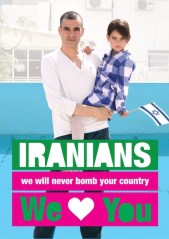Bobby Ghosh, editor of Time International, speaks about the Middle East at Chicago Ideas Week, in Chicago, on Oct. 14, 2013.
There’s no denying that the Middle East is in turmoil. But as TIME’s International editor Bobby Ghosh said Monday at Chicago Ideas Week, there’s also much in the region that is, undeniably, “a sign of hope”—even if it’s overshadowed by images of war.
As part of the Middle East: After the Arab Spring event, Ghosh joined Rutgers professor Eric Davis, Peace Factory founder Ronny Edry, MSNBC contributor Rula Jebreal, NBC News foreign correspondent Ayman Mohyeldin and News Deeply founder Lara Setrakian for a 90-minute discussion about the modern Middle East, and how Americans can—and should—help shape its future. The first step: clarifying these oft-repeated myths.
1. Arabs are nothing like Americans.
“People think we live on two planets: here and the Middle East,” said Davis, a former director of Rutgers’ Center for Middle Eastern Studies. “Nothing is further from the truth.” In fact, according to his research, the overwhelming majority of Iraqis under 30—which is a whopping 70 percent of the population—value ideals that many in the West think of as theirs, like freedom and transparency.
Moreover, as Setrakian stressed, the vast majority of Syrians hate terrorists just as much as Americans do: “They do not like Al Qaeda—they by and large want a secular public. The longer the war goes on, the longer that sentiment gets squashed.”
2. The Arab Spring has failed.
Almost three years after demonstrators started protesting restrictive regimes in Egypt, Syria, Yemen, and more, they’ve yet to transition to stable democracies (though Tunisia has found some success). That sounds bad—until you put it in context. Most Arab states have spent decades years as dictatorships; now, it’s like they’re “waking up with a very bad hangover,” as Mohyeldin put it. “Some people can bounce out of bed, but most are more groggy at first.” In other words, Jebreal added, “it’s too soon to judge one way or another.”
What is clear, however, is that the region has awakened; the very fact that power is being contested, said Moheyldin, “can ultimately produce a healthy political entity.” And radical Islamists—which thrive more in opposition and chaos than government—are increasingly being shunned for more secular ideals.
3. Government officials are the best agents of change.
One of the most intriguing olive branches from Israel to Iran came not from Israeli Prime Minister Benjamin Netanyahu, nor Iranian President Hassan Rouhani, but from one Israeli graphic designer named Ronny Edry. Fed up with the images that had come to define Israeli-Iranian relations—soldiers, explosions, crying children—Edry decided to create a new one, which more accurately reflected how he and his family felt:
Within hours, the original posting was shared hundreds of times, and soon, it had spawned thousands of copycats: Israelis, Iranians and Palestinians all proclaiming their love for each other, and for peace in general. Today, the campaign is known as The Peace Factory, and it’s launching all kinds of new initiatives. “Peace is when we see each other as people,” the site reads. “All we have to do is talk.”
4. The military is the best solution.
Too often, said Setrakian, U.S. intervention in the Middle East is billed as “bomb Syria or not bomb Syria,” or “back the military, or don’t back the military.” But there are plenty of solutions that are, potentially, far more useful in the long-term. Education, for example, has always been America’s biggest form of “soft power” to shape the openness of Arab world, and Washington should be leveraging it. “I know one American who’s found out a way to digitize Syria’s curriculum,” Setrakian said. “Is that going to solve whole Syrian war? No, but it will start to untie the knot.”
Moreover, added Moheyldin, the American voting public should elect more leaders who actually understand the Middle East well enough to make these kinds of nuanced recommendations: “The politicians in Congress don’t reflect America, and that’s a huge disappointment. We as Americans should demand better.”


